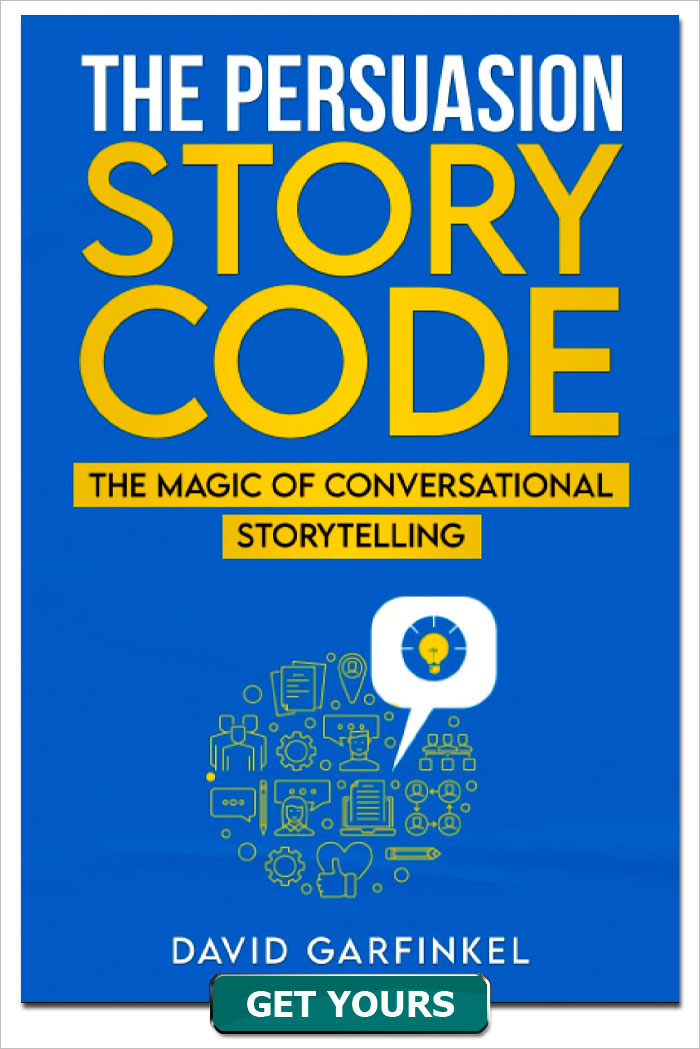Episode 025 - Writing in Your Client's Voice
Published by: David Garfinkel on 10-08-2017
Tweet
Whenever you look at a bestselling book by a celebrity or a politician, the chances are better than good the so-called "author" didn't actually write it. A ghostwriter did. Good ghostwriters command fees comparable to, and sometimes exceeding, the fees of the best copywriters. One of the main reasons they get paid so well is they have the ultimate "chameleon" skill for a writer – they can write convincingly in someone else's voice.
As copywriters, we are often ghostwriters for our clients. How important is the skill of writing in your client's voice for you, as a copywriter? Today we'll talk about that… and… I'll give you some tips on how to do this.
Before we get into all of that, a reminder:
Copy is powerful. You're responsible for how you use what you hear on this podcast. Most of the time, common sense is all you need. But if you make extreme claims… and/or if you're writing copy for offers in highly regulated industries like health, finance, and business opportunity… you may want to get a legal review after you write and before you start using your copy. My larger clients do this all the time.
So let's talk about writing in your client's voice… what it means… where it's important… and how much of it is important in copywriting.
Where Writers Must Totally "Speak" In Their Clients' Voices
- Speechwriters
- Ghostwriters for books
- Screenwriters (each major character needs a unique voice)
Here, mastery of "voice" is mandatory. Fortunately for copywriters, you don't need to be this skilled in capturing your client's voice.
Next Level Down: Webinars
A webinar is where the client speaks through an online presentation, usually with slides, to make a pitch. Getting some sense of the client's voice is really important here, because the slides and script (or outline) needs to line up
with a reasonable approximation of the way your client talks. If your client is stuck with a script that goes so far away from the way they talk, it won't ring true.
And you want it to ring true.
Next Level Down: Sales letters, print ads, emails
There are a few basics you should cover, which we'll get to in a minute. But remember, in most cases, nobody knows what your client really sounds like. So you need far less developed skills than you would as a speechwriter, a screenwriter, or a ghostwriter for a book.
A few words about writing conversationally, period.
This is one of the hardest things for most copywriters – really, most writers – to master. Writing in a way that sounds like speaking.
Why?
How to fix it:
- listen at a Starbuck's / transcribe like a secret agent
- interview / record / handwrite out the way a person talks
- develop an awareness. Which writing reads conversational? Why?
Which writing doesn't. Why
- Get The Art of Plain Talk by Rudolph Flesch. A lot of used copies are available on Amazon for as little as a few dollars. Read it. Figure out how you can put it into practice. It also looks like you can get a pdf of the book on scribd.com, if you sign up for scribd.
- Practice, practice, practice. This should be natural, but the school system and other institutions have beaten our natural ability to write conversationally, out of a lot of us.
So the first thing to do in writing in your client's voice is to learn to write like people speak. Any people. You. A "generic" person. By doing the things mentioned.
Now, assuming you have some sense of how to write conversationally, here are some tips for
- Remember you don't have to sound exactly like your prospect
- Here's how you need to reflect how they sound when they talk:
- values
- their reason-why. Find out why they're doing what they're
doing. See how you can include that in your copy. That personalizes the copy a lot without your having to be too precise in the language
- still, you want to make it sound as much like them as possible.
Again, interview them and transcribe the interview. Take note of
o Any pet words or phases
o Their overall view of the world
o The rhythm of their speech
o How emotional, or non-emotional, the way they talk is
- No matter what you find, you still want to aim for copy that works. So make sure your final draft has
- Clarity
- Simplicity
- Easy to understand words, sentences (high readability)
- And active voice. Tight, muscular writing. Focused on action!
Keywords: copywriting techniques client voice









